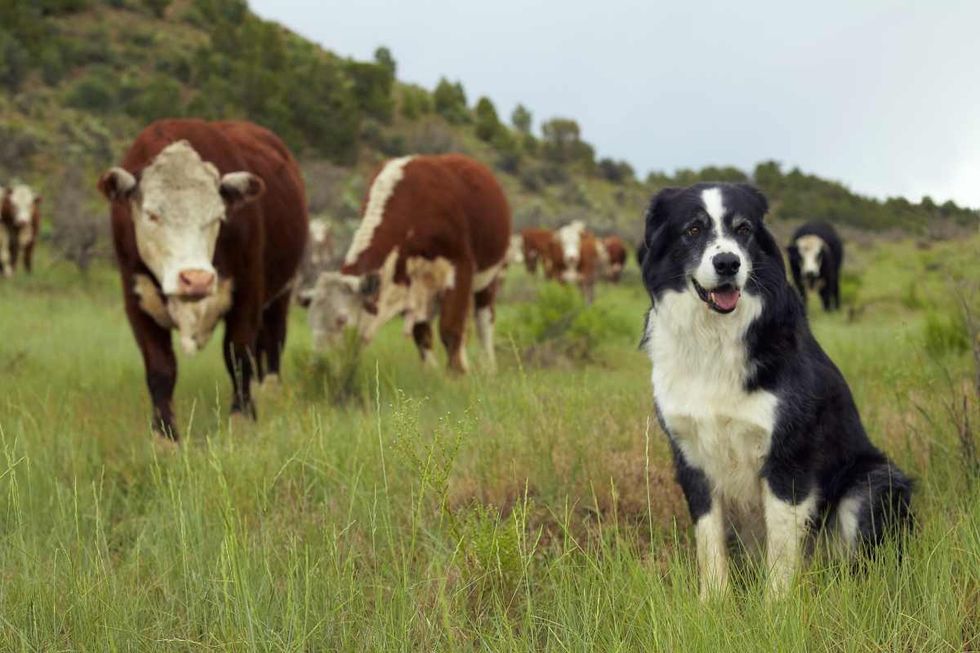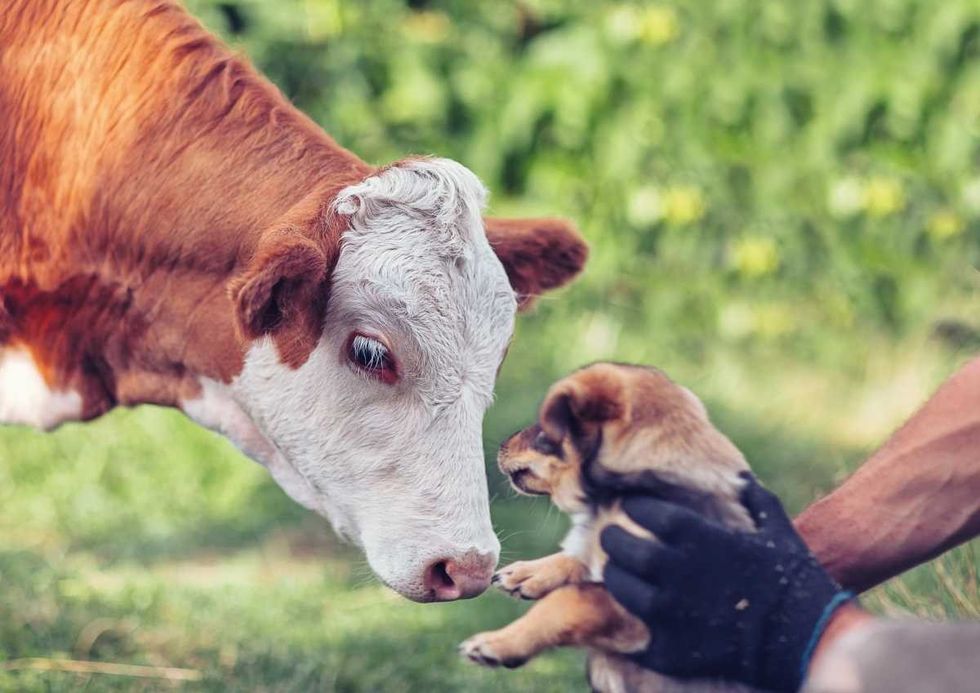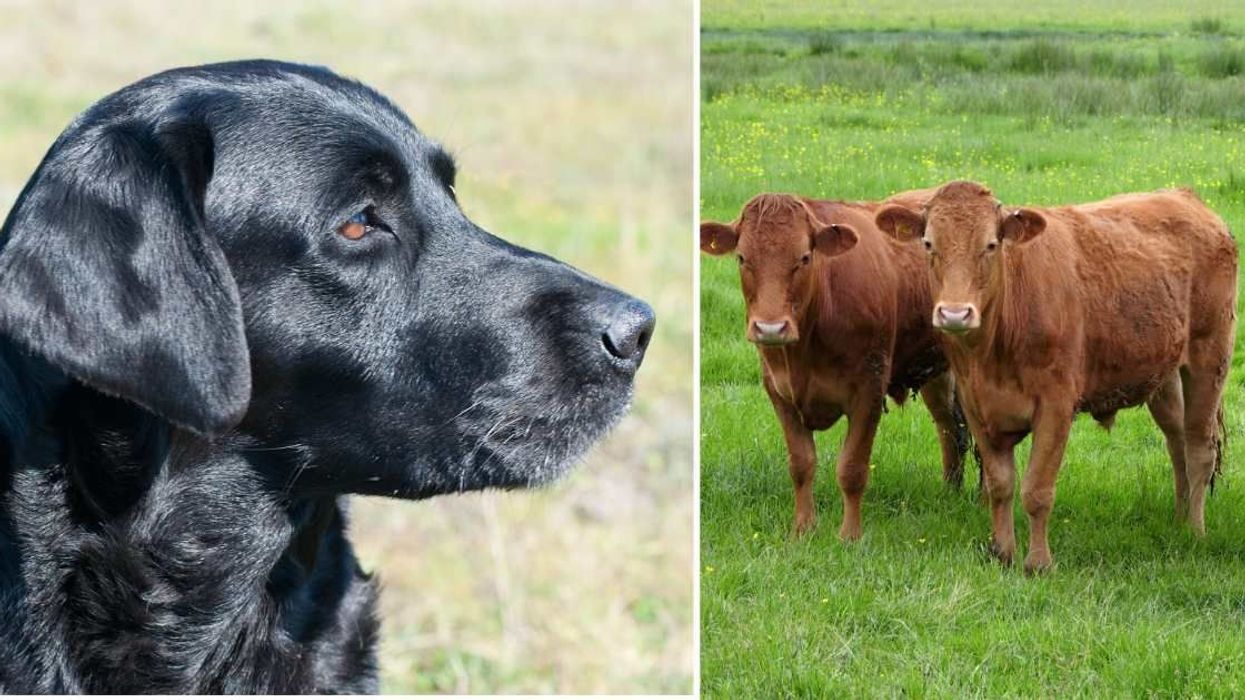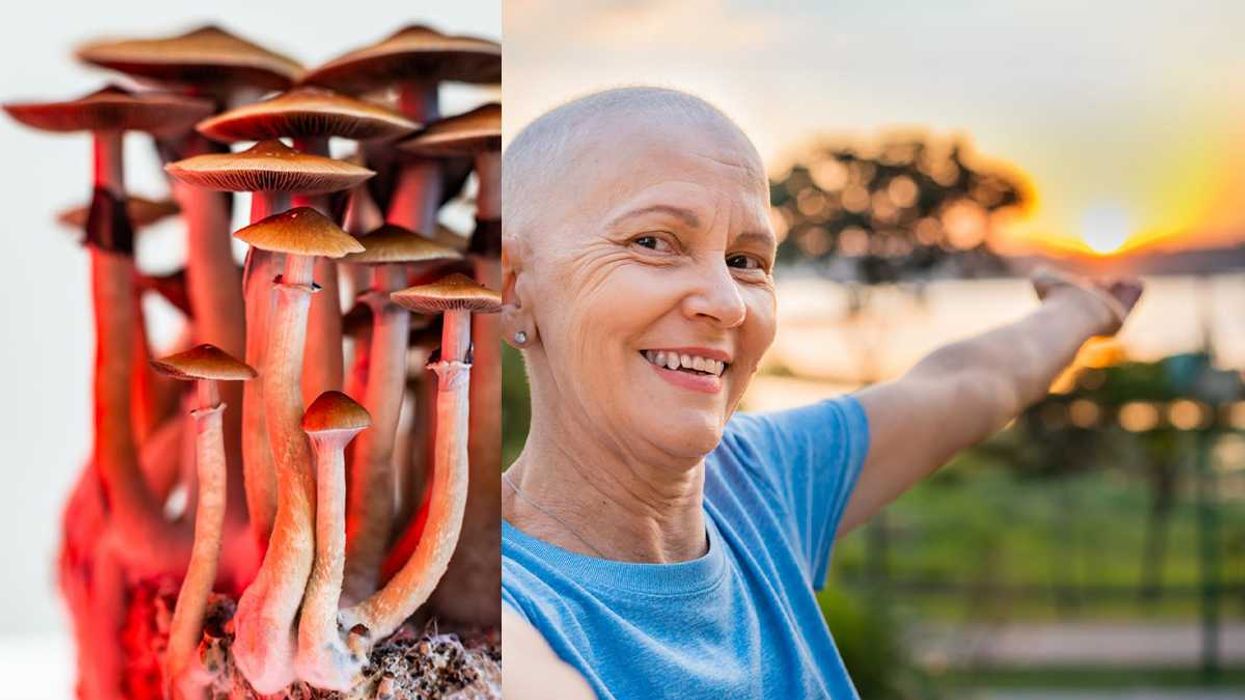While dogs are often called "man's best friend," animals of different species can form deep connections too. For 16 years, Max, a loyal cattle dog, woke up at 6:30 a.m. every day to help on the farm. In September 2024, Max made his final trip to the fields, walking to his owner Charley Herrman's truck (@charleyonthefarm) to be driven to the farm. There, in a heartwarming farewell, Max said goodbye to the cows he had tended to for years, in a touching moment captured in a TikTok video.

The video shows Max resting on a patch of grass next to the lush green pastures of Herrman Farm, where the cows are grazing. With the sound of cows mooing softly in the background, Max remains still. In a touching moment, three brown cows approach, seeming to silently acknowledge their old friend before waddling away. In the caption, 72-year-old Charley shared that Max had recently suffered a heart attack, leaving him weakened. The once-energetic Blue Heeler was now beginning to slow down.

Charley told Newsweek that taking Max to the farm one last time was an appropriate way to honor him for all the work he did for more than a decade. "He had been my loyal work companion seven days a week for over 15 years, always eager to tackle the day alongside me," he said. A few days before the video was posted, Charley noticed an unusual shift in Max’s health. He even consulted a vet and tried everything to keep him healthy and safe, but all efforts seemed to be in vain.
Max’s condition was worsening as days passed, and Charley became certain that these were the canine’s final days. He knew that the pet wanted to have his last trip to the farm. "I knew how much he loved his work on the farm, herding the cows, so I took him back one last time to say goodbye to the life he cherished so deeply," he told Newsweek.

Max’s loss was heartbreaking for Charley as he had lost Max’s father, Ira, an Australian shepherd, only three years back. While grappling with grief, Charley wanted to preserve the dogs’ stories and memories. "Max's story is truly special," he said. "Ira taught him the ropes of being a good 'cow dog,' but Max took it to another level. He insisted on going to work seven days a week for all of his 15 years. He developed an incredible bond with the herd, always ensuring they were where they needed to be."
Charley professed that Max had an innate respect for the cows and in return, the cows respected him, which can also be seen in the video. “He was, without a doubt, the smartest dog I've ever had, and I couldn't have asked for a better partner on the farm,” said Charley. He mentioned that Max passed away only a couple of days after his farewell at the farm that day. "It's been an incredibly tough loss; I can't even bring myself to watch the farewell videos. Our farm holds so many moments that will always remind me of him."
@charleyonthefarm Max’s last time to see his herd after 16 year working them , atfer a heart attack#herrmanfarmsllc #cattle #farmlife #farmtok #cattletok #bordercollie #ranch #ranchlife #part2
You can follow Charley Herrman on TikTok to catch more videos of his farm animals.



















 Amoxicillin is a commonly prescribed broad-spectrum antibiotic.
Amoxicillin is a commonly prescribed broad-spectrum antibiotic.  Chart: The Conversation, CC-BY-ND
Chart: The Conversation, CC-BY-ND
 Counterintuitively, social media can make you feel more bored and lonely.
Counterintuitively, social media can make you feel more bored and lonely. Talking about what you’ve read can add a social dimension to what can be a solitary activity.
Talking about what you’ve read can add a social dimension to what can be a solitary activity. 
 Women and people of color who experience cardiac arrest are less likely to receive CPR.
Women and people of color who experience cardiac arrest are less likely to receive CPR.

 Mushrooms containing psilocybin.Photo credit:
Mushrooms containing psilocybin.Photo credit:  Woman undergoing cancer treatments looks out the window.Photo credit:
Woman undergoing cancer treatments looks out the window.Photo credit:  Friend and patient on a walk.Photo credit:
Friend and patient on a walk.Photo credit: 
